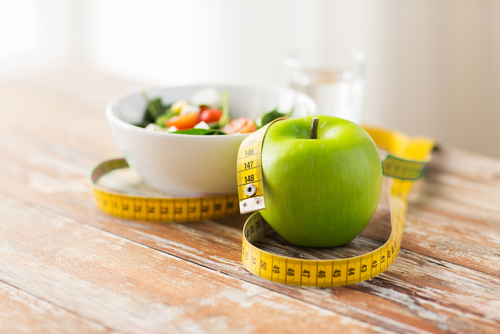


We all know life gets busy, but making good diet choices improves overall health and also reduces the risk of preventable diseases later in life.
Here’s what you need to know.
The Research
Data from the Australian Bureau of Statistics reveals 18-24-year old’s aren’t eating enough fruit and vegetables, with fewer than 5% of them meeting the Australian dietary guidelines.
Professor Clare Collins, Professor of Nutrition and Dietetics in the School of Health Sciences at the University of Newcastle conducted research into the barriers affecting young people’s healthy eating habits.
“We have found that during young adulthood there is a lot of change in living arrangements, relationships and employment status,’ she said.
“There are also a lot of competing time demands for this group, including socialising, study, work, family and parenthood, which can take priority over healthy eating habits.”
The research also showed the majority of young Australians seek nutritional advice from friends or via the internet. As a result, there is a high risk of young people receiving dietary misinformation.
Many diet-related health problems in Australia stem from excessive intake of foods that are high in energy, saturated fat, added sugars and/or added salt but relatively low in nutrients. Also, inadequate intake of nutrient-dense foods can lead to the same health problems.
The Australian Dietary Guidelines
The Australian Dietary Guidelines are the best source of trustworthy dietary information, and is used by health professionals, educators, policy makers, food manufacturers, retailers and researchers. It uses the best available scientific evidence to provide information on the types and amounts of foods, food groups and dietary patterns that aim to:
- Promote health and wellbeing
- Reduce the risk of diet-related conditions (such as high cholesterol, high blood pressure and obesity)
- Reduce the risk of chronic disease (such as type 2 diabetes, cardiovascular disease and some types of cancers)
This guide also provides advice on what foods you should choose for a healthy diet along with recommended serves of these food groups.
Evidence suggests Australians need to eat more:
- Vegetables and legumes/beans
- Fruits
- Wholegrain cereals
- Reduced fat milk, yoghurt, cheese
- Fish, seafood, poultry, eggs, nuts and seeds
- Red meat (young females)
The evidence also suggests we need to eat less:
- Starchy vegetables
- Refined cereals
- High and medium fat dairy foods
- Red meat (male adults)
- Food and drinks high in saturated fat, added sugar, added salt, or alcohol
What can you do to ensure you’re making the right diet choices?
The Home Doctor experts from House Call Doctor have some top tips on how to maintain a healthy diet.
1. Choose whole foods
Choosing to eat more fresh foods rather than packaged ones can improve your nutrition intake and overall health. Fresh foods are generally higher in micronutrients and fibre, and won’t have any hidden fats, sugar and salt. A super easy way to improve your health is to try to fill half your plate with vegetables. Choosing whole foods over products will also decrease your salt intake.
2. Diversify your diet
Embrace a wide range of fruit, vegetables, nuts and seeds to add more vitamins and minerals to your diet. Try to maintain a range of colours in your diet, and add lentils, beans and leafy greens to your dishes.
3. Be mindful of portion sizes
Eating too much, even when eating well can have negative effects on your health. Simply use smaller plates, eat slower and do mindful checks on your appetite.
4. Reduce your sugar intake
Try and ditch ‘free sugars’, which are those added to products or concentrated in products either by the consumer or the manufacturer. The easiest way to cut back on sugar is to avoid sugary drinks and eat whole fruits rather than choosing juice.
5. Choose water
Drinking water is beneficial for your overall health and it’s the easiest and cheapest thing we can do for our health. Make it easy for yourself by starting each morning with two glasses of water, having water with each meal and keeping a reusable water bottle with you at all times.
6. Reduce your alcohol intake
While most of us enjoy an alcoholic beverage from time to time, it is a good idea to keep most days alcohol-free. Alcohol consumption is associated with increased risks of a number of cancers, heart disease, mental illness and more.
For more information, Professor Collins and her research team designed a website called No Money, No Time which provides a number of resources young people can use to help them develop healthy eating habits.
If you’re concerned with your diet choices, the after-hours GP House Call Doctor recommends consulting with your GP.




